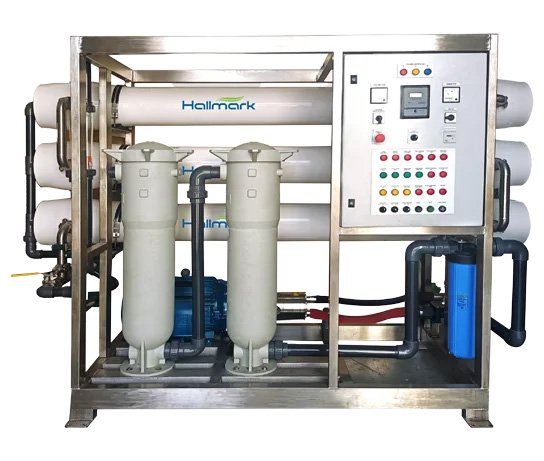Shopping cart
Recent Posts
Newsletter
Sign Up to get updates & news about us . Get Latest Deals from Walker's Inbox to our mail address.
Phone Number:
+971 55 296 5870Sign Up to get updates & news about us . Get Latest Deals from Walker's Inbox to our mail address.
Phone Number:
+971 55 296 5870A Reverse Osmosis Plant offers an efficient solution for desalinating seawater, ensuring that ships and offshore platforms can maintain a sustainable supply of potable water. This technology not only helps in meeting regulatory standards but also significantly reduces the logistical costs associated with freshwater transport.

A Reverse Osmosis Plant utilizes advanced membrane technology to filter out salts, minerals, and contaminants from seawater or brackish water. The process involves pushing water through semi-permeable membranes, allowing only water molecules to pass while rejecting impurities. This method provides a reliable and environmentally friendly way to produce high-quality drinking water, making it ideal for maritime operations.
Cost-Effective Water Supply: By converting seawater into fresh water, a Reverse Osmosis Plant drastically reduces dependency on water transport, leading to significant cost savings.
High-Quality Water Production: The technology ensures that the produced water meets or exceeds international safety standards, making it suitable for human consumption and other onboard needs.
Space Efficiency: Modern Reverse Osmosis Plants are designed to be compact, fitting seamlessly into the limited space available on ships and offshore platforms.
Energy Efficiency: With advancements in technology, many Reverse Osmosis systems now operate at lower energy consumption levels, reducing overall operational costs.
Durability and Reliability: Constructed to withstand harsh marine environments, these plants are built for long-term use, requiring minimal maintenance.

Cost-Effective Water Supply: By converting seawater into fresh water, a Reverse Osmosis Plant drastically reduces dependency on water transport, leading to significant cost savings.
High-Quality Water Production: The technology ensures that the produced water meets or exceeds international safety standards, making it suitable for human consumption and other onboard needs.
Space Efficiency: Modern Reverse Osmosis Plants are designed to be compact, fitting seamlessly into the limited space available on ships and offshore platforms.
Energy Efficiency: With advancements in technology, many Reverse Osmosis systems now operate at lower energy consumption levels, reducing overall operational costs.
Durability and Reliability: Constructed to withstand harsh marine environments, these plants are built for long-term use, requiring minimal maintenance.
While Reverse Osmosis Plants are a reliable source of freshwater, they also produce brine, a concentrated salt solution. It’s essential to manage this byproduct carefully to minimize environmental impact, particularly in sensitive marine ecosystems. Many modern systems include brine dilution and discharge strategies to address this issue.
The capacity can vary significantly depending on the vessel or platform’s needs, ranging from a few hundred liters per hour to several thousand liters per day.
Routine maintenance is typically needed every 6 to 12 months, including cleaning the membranes and checking the system components. However, this can depend on the operational environment and water quality.
Yes, Reverse Osmosis Plants can also treat brackish water, making them adaptable for various freshwater sources.
Energy requirements vary by system design and capacity but modern plants are designed to be energy-efficient, often utilizing energy recovery systems to lower costs.
A Reverse Osmosis Plant is an essential asset for ships and offshore platforms, ensuring a reliable supply of high-quality freshwater. With its efficiency, compact design, and adaptability, this technology addresses one of the most pressing challenges in maritime operations. As the industry continues to evolve, the implementation of advanced desalination solutions will be vital for sustainable practices on the high seas.